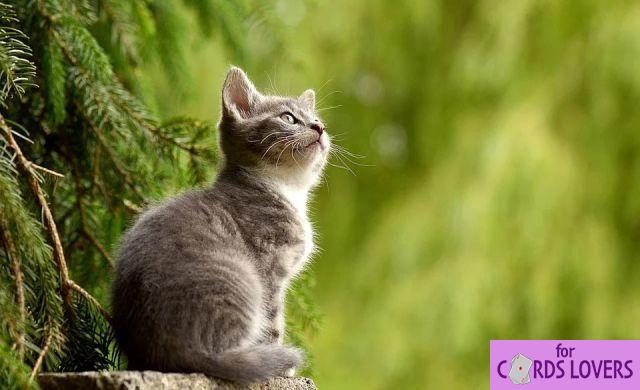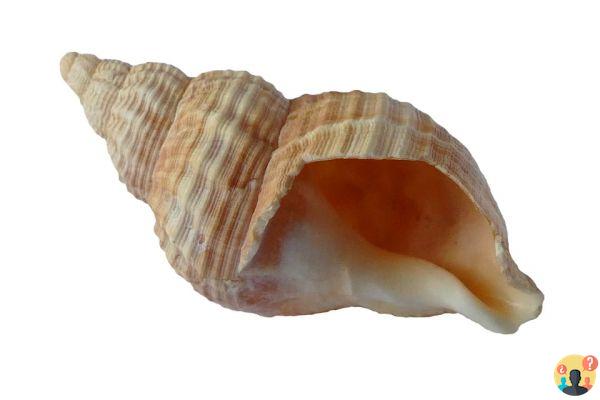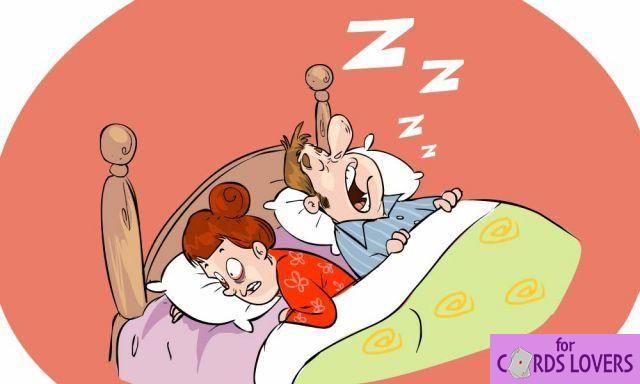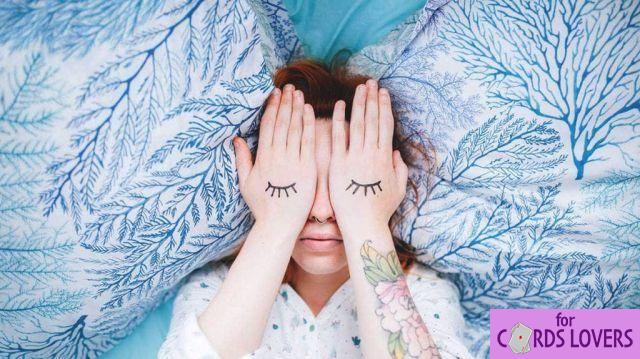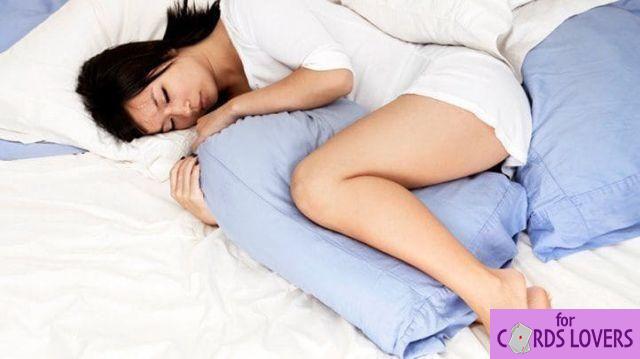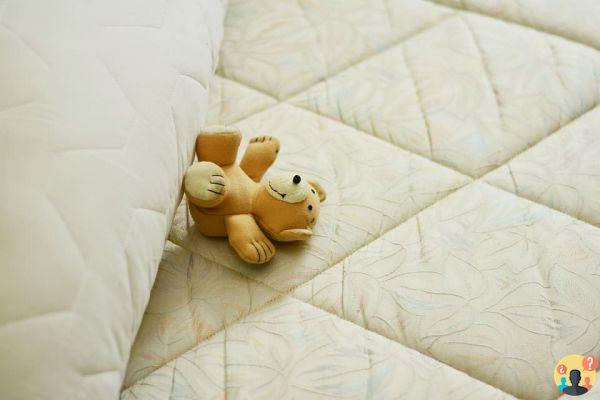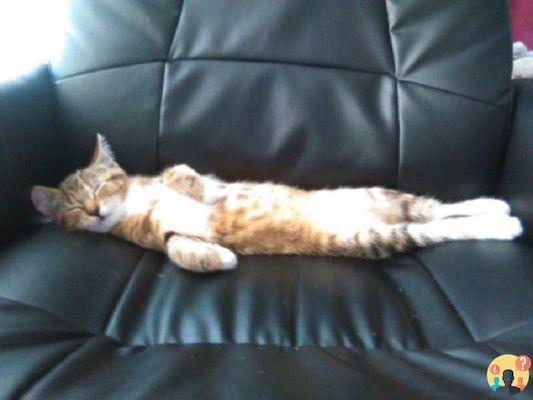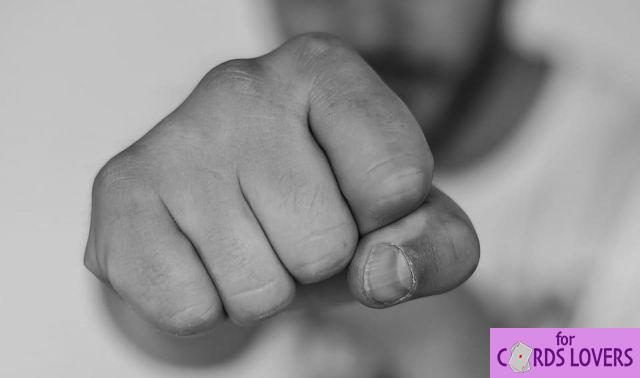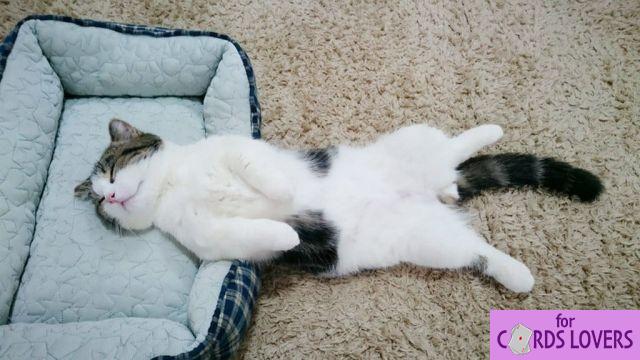
A cat lying on its back exposes its soft and delicate belly. But trying to scratch it will end in scratching and biting. In fact cats sometimes sleep on their backs when they are completely comfortable and confident that you won't touch them.
They sometimes sleep on their back to have more comfort and relieve pressure or to regulate their temperature, the causes are very diverse.
But overall, it's a sign of comfort and trust in you that you won't disturb them.
It is also a sign that they feel safe.
Cat sleeping on its back: The different reasons
1 / Confidence and contentment
Most tanks protect their bellies and legs from any potential danger. Their belly is very soft and they need complete trust in you to expose it. If a cat sleeps like this in your presence, you've gained their trust.
It is therefore necessary to prove that he is right to trust you and that it is not out of place. This means that you should not touch his stomach when he sleeps on his back.
If your cat sleeps in this position, leave him alone. It is sometimes awkward if he sleeps on your chair and it is advisable to sit elsewhere until he wakes up if you want to maintain a harmonious relationship with him.
2 / Defensive posture
Some cats sleep on their backs for protection, although this seems totally opposite to the previous reason, it actually makes perfect sense as the cat has easy access to these four claws when sleeping on their backs. If he is threatened, this position allows him to attack much more easily.
If a cat feels insecure or defensive, they will stay hidden and also while sleeping or they will find an enclosed space and sleep on their backs. Any physical approach will experience scratches and bites.
The attacks are not limited to the physical but also concern the noise which can immediately make the sleeping cat aggressive. It will react by suddenly waking up and attacking any source of perceived danger.
3 / Physical comfort
Cats sometimes sleep on their backs for their physical comfort and put themselves in a relaxing position so they feel safe from outside dangers.
Plus, a cat that sleeps on its back can just handle the physical pain. Various symptoms, especially those related to the aging process are minimized when the cat is asleep on its back.
3.1 Musculoskeletal problems
If a cat is sleeping on its back, it is not putting pressure on its paws. This is particularly important for older cats with arthritis . The more a cat uses its joints when awake, the more pain it will feel. By sleeping on their backs, their limbs get a welcome respite.
It's not just the limbs that can suffer from arthritis. A cat's spine also supports a lot of movement. Cats have flexible spines, but there is a limit to what they can endure, especially after a certain age.
3.2 Relieve headaches
A cat that sleeps on its back can experience headaches and choose this position to sleep better without suffering too much. A feline headache is often a secondary concern, acting as a symptom of a deeper illness.
Cats naturally know that sleeping on their backs will relieve their headaches and tension. This keeps their spine straight and allows good blood flow to the head. A cat with a headache is often grumpy. That he sleeps in this position is ideal for everyone.
3.3 Improving the quality of breathing
Sleeping on her back also helps a cat breathe better, and this is important if she has an upper respiratory infection, the equivalent of a feline cold. Your cat's nose will potentially be blocked making it difficult to breathe and they will have no choice but to sleep in their position.
Some senior cats will breathe heavily at rest even though they are healthy. Indeed, cats are more and more exhausted over time. Sleeping on his back will be ideal so that he can catch his breath without any problem.
3.4 Gastric diseases
If your cat has a stomach ache, sleeping on her back will give her some respite. A cat suffering from gastritis, for example, will experience stomach pain. Similarly, a cat with a respiratory problem will feel pain preventing it from sleeping in other positions.
By sleeping on its back, the cat avoids exerting pressure on its belly. This will help the cat sleep. Obviously, the cause of the problem must always be resolved in depth.
It is also possible that the cat has gas because it ate too quickly. This will be a temporary problem, but your cat will stay in this sleeping position until the sensation passes.
Don't discount the possibility that the cat has eaten too much, as they are rarely good at moderating their diet and some are very greedy and may have even eaten mice without telling you. If your cat is in pain, place him on his side so he can vomit.
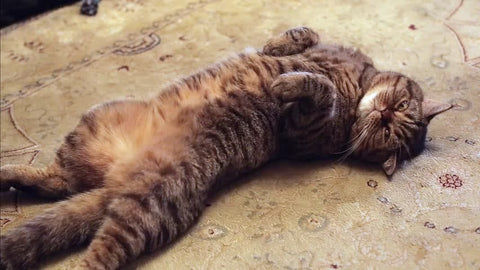
4 / Temperature regulation
Heat enters and leaves a cat's body through its ears and paws. By sleeping on its back, the cat leaves these paws exposed.
A cat is comfortable when its body temperature is between 100,5 and 102,5 degrees Fahrenheit and it drops during sleep. He will therefore choose a suitable sleeping position, especially if it is too hot outside.
4.1 Warm temperatures
If a hot cat, sleeping on your back is the most comfortable position possible. Cats sweat through their paws. By leaving the paws uncovered, the cat sleeping on its back can release excess heat.
The cat's belly and paws will also get a welcome breeze when sleeping in this position, so it's totally natural. No need to apply a fan in the direction of his belly, because cats hate drafts which they do not find comfortable at all.
4.2 Cold temperatures
If your cat is cold, it is also certain that it will sleep on its stomach and may even roll up into balls. In this way, the ears and paws are protected from the cold and can be kept white. An exception applies in the case where the cat sleeps near a heat source such as a radiator or a fire.
A good example to illustrate this is the case where the sun beats against the windows in winter, the cat will then like to bask in the pill by feeling the heat of its rays.
You'll see him sleeping in this position when it's cold and he'll huddle near the radiator.
5 / Kitten Memories
Some cats sleep on their back by habit, it is a habit taken in their young years of kittens. They lie on their backs to receive their mother's attention when they are infants. Some cats retain this sleeping pattern.
5.1 Power supply
Until the kittens are weaned, competition for their mother's teats is fierce. The kittens will then do whatever it takes to feed and assume a feeding position ahead of time. This way they are ready to eat as soon as their mother allows them to.
5.2 Disposal
Cats sleep on their backs when they fail to eliminate. It can take up to six weeks for kittens to get used to the litter box. Indeed, at this age, their mother must stimulate their potty zone in the wild.
This is achieved by the mother by licking the kitten. Sensation helps kittens urinate or eliminate. They can therefore sleep on their backs for this reason, especially when they are still very young.
And yes, because as with food, there will be a lot of competition for this treatment and to avoid being caught in the fray. The kittens then lie on their backs to fall asleep and can be directly available to their mother, providing easy access.
5.4 Maternal bond
If you have a strong bond with your cat, he may think of you as his mother. But be careful, because many cats don't see you as superiors but as equals and may even see you as simple caregivers, as if you had to do their mother's job.
This does not mean that you have to fulfill this role, but check that he does not suffer from stomach problems and that they are able to eliminate themselves without needing your help.
5.5 Request for grooming
Another reason for this position to sleep is a request for grooming, because as any mother cat does, the cat sometimes needs stimuli to eliminate. Your cat may ask you to help her eliminate well, and you can gently stroke her belly to help her with her task.
Use caution when attempting to do this remembering previous warnings? Many cats don't like to be touched on the sale. This is especially true if the cat is sleeping on its back. If you suddenly wake him up, then be sure to get scratched.
You will get an idea of whether it is necessary for your cat by its behavior before falling asleep. If the cat was snuggling up to you or meowing then it's a sign that he was expecting something from you. He then probably fell asleep while waiting for your attention.
If he's asleep, wait until he wakes up before you start petting him to help him empty. If he has managed to fall asleep then he can wait until he wakes up to soil his litter.
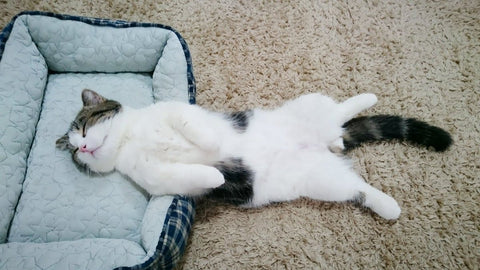
6 / Imitation
A cat that sleeps on its back may do so because of imitation. Cats love to imitate owners and other pets. If the cat thinks you look good in this position, it will attempt to replicate the position itself.
Cats often watch their owner sleep, especially in the morning. Your cat will wait until you wake up to demand food. If you are a deep sleeper on your back, he will tend to mimic this position.
Your cat may start to adopt the same position as you or even seek to imitate another feline. If there are several cats for example.
If one of the cats sees another cat sleeping on its back, it will tend to choose the same way of sleeping and will imitate it.
7 / In heat or pregnant
A cat that suddenly begins to sleep on her back may be in heat or pregnant.
Cats in heat give off an unmistakable odor, usually by spraying and marking. A cat will not be able to do this while sleeping. Lying on your back is the best thing to do. Cat scent will always attract a potential mating mate.
If she is pregnant, she will be aware of this and after several weeks she will feel changes throughout her body, and will then roll onto her back to avoid any pressure on her stomach.
Pregnant cats also sleep on their backs to remain vigilant during the gestation period and to be able to act in the event of threats. He is afraid that the cat will become aggressive with everyone until the moment of delivery.
Conclusion
Cats sleep on their backs for a wide variety of reasons. There is no need to worry about it. A cat is unlikely to sleep on its back unless it feels completely relaxed. Let the cat that sleeps on his back stay in this state of happiness by leaving him alone





